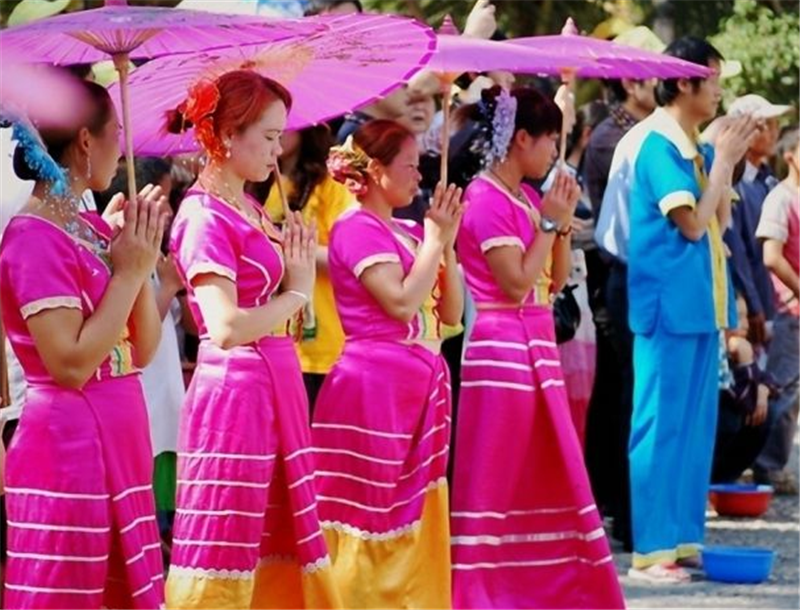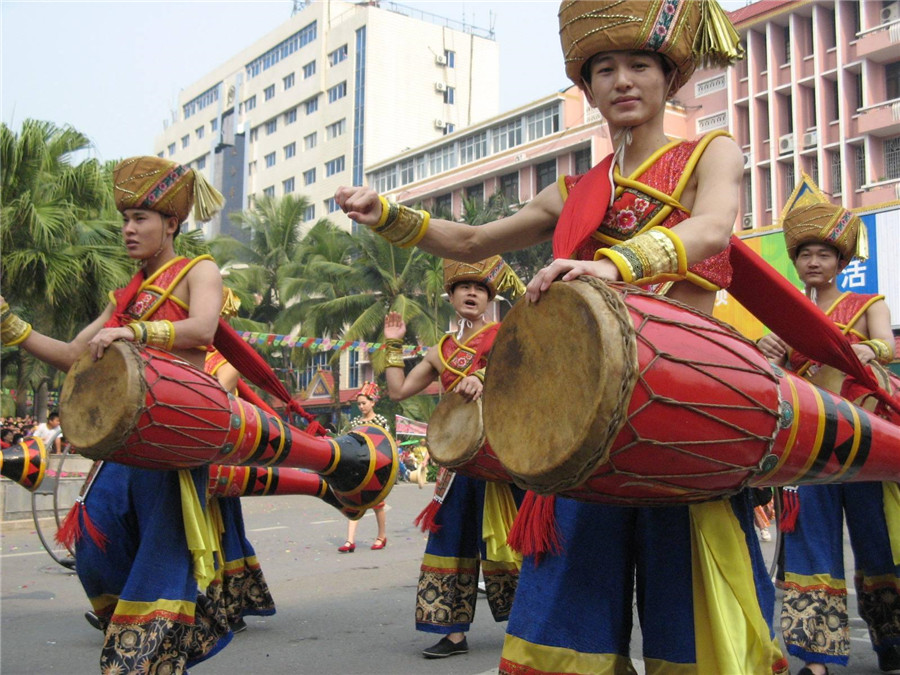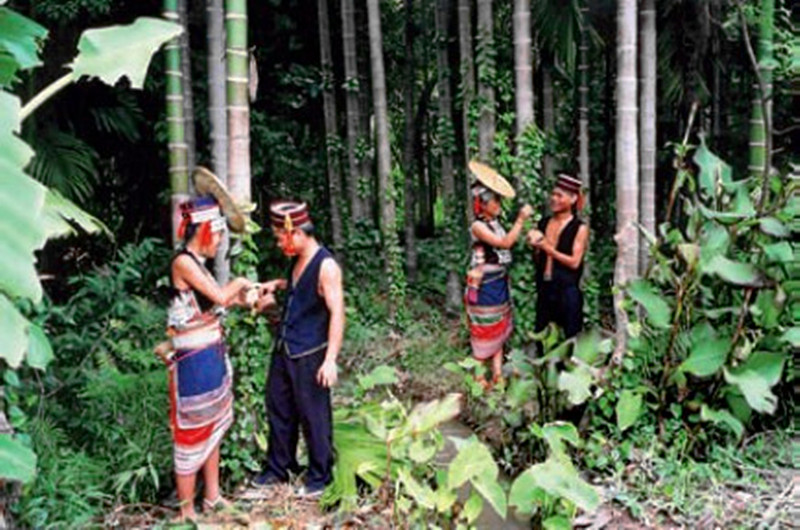

-
- Home
- Yunnan Tours
Most Popular Yunnan ToursEssential Yunnan TripsFind Yunnan Tours by MonthFind Yunnan Tours by Duration
- Group Tours
Popular Yunnan Group ToursAll Yunnan Group Tours
- 1 Day Kunming Stone Forest Group Tour
- 1 Day Jade Dragon Snow Mountain Group Tour
- 2 Days Tiger Leaping Gorge Hiking Group Tour
- 4 Days Haba Snow Mountain Climbing Group Tour
- 6 Days Yuanyang Hani Rice Terraces Group Tour
- 8 Days Kunming-Dali-Lijiang-Shangri-la Group Tour
- 8 Days Yunnan Chinese-Speaking Group Tour
- 15 Days Yunnan-Tibet Small Group Tour
- Themes Tours
Top Yunnan Tour Themes
- Self-Driving Tours
- Family Tours
- Muslim Tours
- Join Group Tours
- Yunnan Hiking Tours
- Tea Culture Tours
- Yunnan Cycling Tours
- Yunnan Golf Holiday
- China Tours Including Yunnan
- Minority Discovery
- Daocheng Yading Tours
- High Speed Train Tours
- Three Parallel Rivers Tours
- Minority Festival Tours
- River Rafting Adventure
- Students Education Tours
- Yunnan (China)-Laos Tours
- Yunnan Birdwatching Tours
- Yunnan Tibet Tours
- Yunnan Coffee Tours
- Chinese-speaking Group Tours
- Yuanyang Rice Terraces Tours
- Snow Mountain Climbing Tours
- Motorbike Tours
Top Yunnan Themes Tours- 12 Days Yunnan Tank 300 Self Driving Tour
- 17 Days Yunnan-Tibet Self-Driving Tour
- 5 Days Kunming Golf Tour
- 7 Days Best Yunnan Golf Tour
- 4 Days Lijiang to Yubeng Village Hiking Tour
- 7 Days Lijiang and Shangri-La Hiking Tour
- 7 Days South Yunnan Muslim Tour
- 8 Days Best Yunnan Muslim Tour
- 8 Days Students Education Tour
- 8 Days Best Yunnan Puerh Tea Tour
- 6 Days Water Splashing Festival Tour
- 8 Days South Yunnan Ethnic Culture Tour
- 46 Days Yunnan Panorama Ethnic Culture Tour
- 2 Days Yangtze River Rafting Tour
- 7 Days Nujiang Grand Canyon Rafting Tour
- 8 Days Meili Beipo Hiking Tour
- 9 Days Lijiang and Shangrila Adventure
- 9 Days Lijiang- Shangri-La Circle Tour
- 12 Days Three Parallel Rivers Overland Tour
- 9 Days Yunnan-Vietnam Overland Tour
- 16 Days Yunnan-Laos Speed Train Tour
- 6 Days XishuangBanna and Puer Birding Tour
- 15 Days Southwest Yunnan Birding Tour
- 9 Days Shangri-La and Lijiang Cycling
- City Tours
Popular Prefecture-Level Cities
- Dali Tours
- Nujiang Tours
- XishuangBanna Tours
- Diqing Tours
- Honghe Tours
- Puer Tours
- Dehong Tours
- Zhaotong Tours
- Yuxi Tours
- Wenshan Tours
- Qujing Tours
- Lincang Tours
- Baoshan Tours
- Chuxiong Tours
Popular Tourist Destinations to Visit- Tiger Leaping Gorge
- Haba Snow Mountain
- Meili Snow Mountain
- Three Parallel Rivers
- Yuanyang Hani Rice Terraces
- Dongchuan Red Land
- Yubeng Village
- Jade Dragon Snow Mountain
- Stone Forest
- Dulongjiang
- Puzhehei
- Feilaisi
- Tengchong
- Jingmai
- Jinghong
- Niru Village
- Lijiang Ancient Town
- Shaxi Ancient Town
- Baisha Ancient Town
- Nuodeng Ancient Town
- Baoshan Stone Town
- Heshun Ancient Town
- Lugu Lake
- Fuxianhu Lake
- Baihualing
- Bingzhongluo
- Mangshi
- Travel Guide
Destination GuideYunnan GuideTravel TipsEthnic CultureYunnan FestivalsGolf CoursesTravel ArticlesYunnan WeatherPopular Destinations Travel GuidePrefecture-Level Cities Travel Guide
- Dali
- Nujiang
- XishuangBanna
- Diqing
- Honghe
- Puer
- Dehong
- Zhaotong
- Yuxi
- Wenshan
- Qujing
- Lincang
- Baoshan
- Chuxiong
Popular Tourist Destinations to Visit- Tiger Leaping Gorge
- Haba Snow Mountain
- Meili Snow Mountain
- Three Parallel Rivers
- Yuanyang Terraces
- Dongchuan Red Land
- Yubeng Village
- Yulong Snow Mountain
- Stone Forest
- Dulongjiang
- Puzhehei
- Feilaisi
- Tengchong
- Jingmai
- Jinghong
- Niru Village
- Lijiang Ancient Town
- Shaxi Ancient Town
- Baisha Ancient Town
- Nuodeng Ancient Town
- Baoshan Stone Town
- Heshun Ancient Town
- Lugu Lake
- Fuxianhu Lake
- Baihualing
- Bingzhongluo
- Mangshi
- Ruili
- Cangyuan County
- Menghai County
- Best Companies in Yunnan
- Celebrities in Yunnan
- Chinese Zodiac
- Footsteps of Joseph Rock
- Government Departments
- Overseas Chinese Farms
- Sports in Yunnan
- Yunnan Administrative Divisions
- Yunnan Agriculture
- Yunnan Art
- Yunnan Borders
- Yunnan Climate
- Yunnan Culture
- Yunnan Economy
- Yunnan Eighteen Oddities
- Yunnan Facts
- Yunnan Geography
- Yunnan Health
- Yunnan History
- Yunnan Maps
- Yunnan Paleontology
- Yunnan Photos
- Yunnan Security
- Yunnan Videos
- Yunnan Shopping
- Yunnan Culture
- Yunnan Cuisine
- Yunnan Tourism
- Arrival and Departure
- Basic Yunnan Travel Tips
- Children and The Elderly Travel
- Chinese Visa
- Destinations to Yunnan Travel
- Drinking Tips in Yunnan
- Embassies in Yunnan
- Entry & Exit Yunnan
- Ethnic Culture Travel Tips
- Etiquette and Taboos in Yunnan
- How to Get to Yunnan
- How to Plan Your Yunnan Trip
- How to Travel in Yunnan
- Keep Healthy in Yunnan
- Money and Banking in Yunnan
- Road Condition in Yunnan
- Safty of Yunnan Travel
- Shopping Tips in Yunnan
- Tips for Group Tours
- Tips for Yunnan Birding Tours
- Tips for Yunnan Hiking Tours
- Tips of Yunnan Food
- Top Things to Do in Yunnan
- Travel to Yunnan in Winter
- What to Visit in Yunnan
- What to Visit in Yunnan
- While in Yunnan
- Why Travel To Yunnan
- Yunnan and Indochina Travel Tips
- Yunnan Photography Tips
- Yunnan Themes Travel Tips
- Yunnan Tour Planning
- Yunnan Tours from China Cities
- Yunnan Tours from Countries
- Yunnan Tours from World Cities
- Yunnan Train Travel Tips
- Yunnan Travel Cost
- Yunnan Travel FAQ
- Yunnan Travel Insurance
- Yunnan Travel Tools
Ethnic Villages, Towns, Heritages in Yunnan- Autonomous Counties in Yunnan
- Autonomous Prefectures in Yunnan
- Ethnic Towns in Yunnan
- Featured Ethnic Villages in Yunnan
- Local Ethnic Markets
- Traditional Villages in Yunnan
- Villages for Ethnic Festivals
- Intangible Cultural Heritages in Yunnan
- Traditional Villages in Yunnan
Ethnic Minorities in YunnanFestivals By Month- Yunnan Festivals in January
- Yunnan Festivals in February
- Yunnan Festivals in March
- Yunnan Festivals in April
- Yunnan Festivals in May
- Yunnan Festivals in June
- Yunnan Festivals in July
- Yunnan Festivals in August
- Yunnan Festivals in September
- Yunnan Festivals in October
- Yunnan Festivals in November
- Yunnan Festivals in December
Festivals By Ethnic MinoritiesTop Golf Courses in YunnanAll Golf Clubs and Courses in Yunnan- Kunming Lakeview Golf Club
- Kunming Country Golf Club
- Kunming Hot Spring Golf Club
- Kunming Sunshine Golf Club
- Kunming Qianglin Golf Club
- Kunming Yulong Bay Golf Club
- Dali Stone Mountain Golf Club
- Qujing Kingyan Manor Golf Club
- Tengchong Gaoligong Golf
- Kunming Spring City Golf & Lake Resort
- Lijiang Jade Dragon Snow Mountain Golf Club
- Kunming ClTlC Ka Lizhe Wetland Field Golf Club
How to Plan Your Yunnan Tour- Packing for Yunnan Birding Trip
- Packing for Yunnan golf trip
- What to Pack for Yunnan Travel
- How to Plan a Winter Ski Tour
- How to Plan a Family Tour
- How to Plan Cycling Tour
- How to Plan Mountain Climbing
- How to Plan Photography Tour
- How to Plan Minorities Discovery Tour
- How to Plan Tea Culture Tour
- How to Plan a Join Group Tour
- How to Plan Yunnan Hiking Tour
- How to Plan Flowers Tour
- How to Plan Education Tour
- How to Plan Birdwatching Tour
- How to Plan Hot Spring Tour
- How to Plan Honeymoon Tour
- How to Plan Muslim Tours
- How to Plan Ethnic Festival Tours
- How to Plan Ethnic Markets Tours
- How to Plan Motorbike Tours
- How to Plan Food Culture Tour
- How to Get to Yunnan
Most Popular Themes Travel in YunnanFour Seasons for Yunnan TravelMonthly Weather and Wearing, Packing Ideas- Weather in January
- Weather in February
- Weather in March
- Weather in April
- Weather in May
- Weather in June
- Weather in July
- Weather in August
- Weather in September
- Weather in October
- Weather in November
- Weather in December
Popular Cities Weather and Climate in Yunnan - Attractions
Top Yunnan Tourist Attractions You Can't Miss Out
- The Stone Forest (Shilin), Kunming
- Dongchuan Red Land in Kunming
- Dali Old Town
- Erhai Lake in Dali
- Three Pagodas Temple in Dali
- Shaxi Old Town in Dali
- Lijiang Old Town
- Jade Dragon Snow Mountain in Lijiang
- Lugu Lake in Lijiang
- Tiger Leaping Gorge in Shangri La
- Haba Snow Mountain in Shangri La
- Dukezong Old Town in Shangri La
- Songzanlin Monastery in Shangri La
- Meili Snow Mountain in Diqing
- Three Parallel Rivers
- Nujiang Grand Canyon
- Yuanyang Rice Terraces
- XishuangBanna Tropical Botanical Garden
- Jingmai Tea Mountain in Puer
- Wild Elephant Valley in Jinghong
- Jianshui Old Town
UNESCO World Heritage Sites in Yunnan- Old Town of Lijiang Since 1997
- Three Parallel Rivers Since 2003
- South China Karst & Stone Forest Since 2007
- Chengjiang Maotianshan Fossil Site Since 2012
- Honghe Hani Rice Terraces Since 2013
- Jingmai Tea Mountain Since 2023
Mostly-read Yunnan Top Things To Do- Top 10 Best-Selling Tours in Yunnan
- Top Tourist Destinations in Yunnan
- Top Ancient Villages to Visit in Yunnan
- The Most Famous Ancient Towns
- The Best time to Visit Yunnan
- Top Main Rivers in Yunnan Province
- Must-Visit Attractions in Yunnan
- Top 10 Reasons To Visit Yunnan
- Top Ethnic Minority Festivals
- Top Things to Know for Yunnan Travel
- Top Beautiful Lakes in Yunnan
- Top Famous Mountains in Yunnan
- Top Snow Mountains to Visit Yunnan
- Top Golf Clubs in Yunnan
- Top Muslim Attractions in Yunnan
- Top Ethnic Markets in Yunnan
- Top Must-Visit Temples in Yunnan
- Most Famous Tea Mountains
- Customize
- Tour Experiences
- Destinations
- Travel Guide
- About US
Find your idea
 7 Days GolfingTour
7 Days GolfingTour
 8 Days Group Tour
8 Days Group Tour
 8 Days Yunnan Tour
8 Days Yunnan Tour
 7 Days Shangri La Hiking
7 Days Shangri La Hiking
 11 Days Yunnan Tour
11 Days Yunnan Tour
 6 Days Yuanyang Terraces
6 Days Yuanyang Terraces
 11 Days Yunnan Tour
11 Days Yunnan Tour
 8 Days South Yunnan
8 Days South Yunnan
 7 Days Tea Tour
7 Days Tea Tour
 8 Days Muslim Tour
8 Days Muslim Tour
 12 Days Self-Driving
12 Days Self-Driving
 4 Days Haba Climbing
4 Days Haba Climbing
 Tiger Leaping Gorge
Tiger Leaping Gorge
 Stone Forest
Stone Forest
 Yunnan-Tibet
Yunnan-Tibet
 Hani Rice Terraces
Hani Rice Terraces
 Kunming
Kunming
 Lijiang
Lijiang
 Shangri-la
Shangri-la
 Dali
Dali
 XishuangBanna
XishuangBanna
 Honghe
Honghe
 Kunming
Kunming
 Lijiang
Lijiang
 Shangri-la
Shangri-la
 Yuanyang Rice Terraces
Yuanyang Rice Terraces
 Nujiang
Nujiang
 XishuangBanna
XishuangBanna
 Spring City Golf
Spring City Golf
 Snow Mountain Golf
Snow Mountain Golf
 Stone Mountain Golf
Stone Mountain Golf









